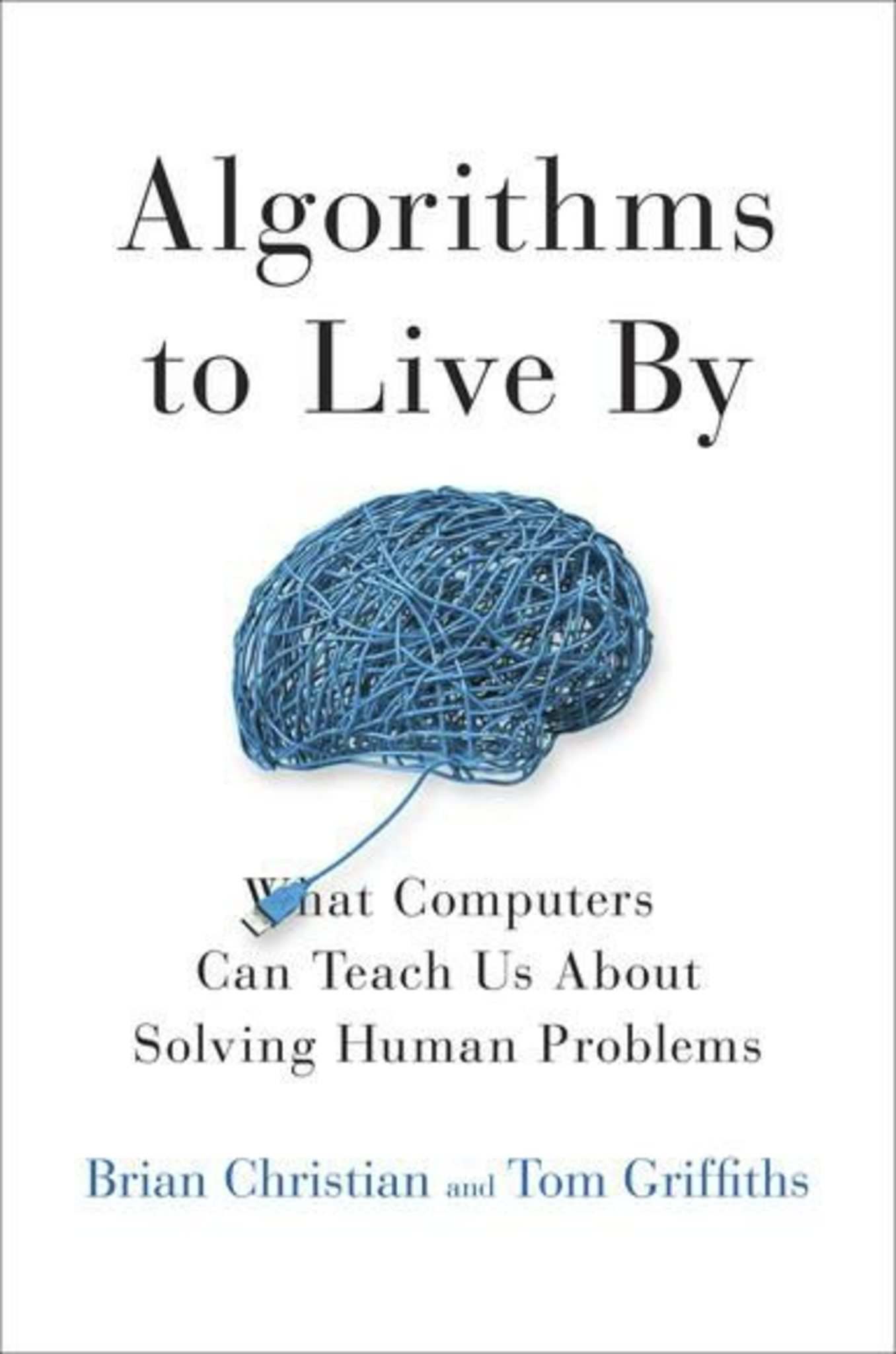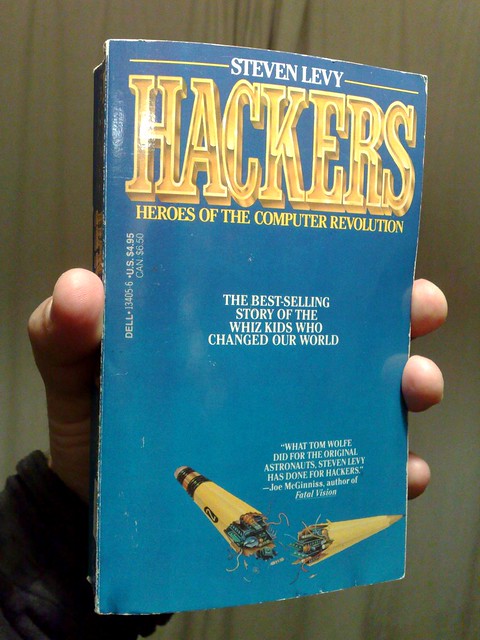List of best books to learn computer science The books on this list run the gamut, from biographies of industry legends, to book-length...
List of best books to learn computer science
The books on this list run the gamut, from biographies of industry legends, to book-length love letters to the earliest computers, to how-tos. While the books themselves vary dramatically, each book on this list is a classic, has remained a timeless addition to the constantly changing field of Computer Science, and reflecting the love of any successful Computer Science major should feel toward his chosen skill.
Algorithms to Live By: The Computer Science of Human Decisions
Brian Christian and Tom Griffiths

The Soul of a New Machine
Tracy Kidder
Tracy Kidder's The Soul of a New Machine is one of the few must-read histories about the world of Computer Science. First published in 1981, Kidder's classic remains one of the most regarded books about computers to ever hit the shelves. The Soul of a New Machine carefully recounts the drama, comedy, and excitement of the early years of computers, at the time when there was only one company making the effort to bring a new microcomputer to the mass market. Computer Science Majors will also appreciate the go-for-break approach to business that is briefly referenced here, but has become an approach that so many high-tech companies still maintain.
Superintelligence: Paths, Hazards, Strategies
Nick Bostrom
As Hollywood has been asking for years, what happens when machines surpass humans in general intelligence? Will artificial agents save or destroy us? In Superintelligence, author Nick Bostrom attempts to answer that question and others by laying a foundation for understanding the future of humanity and intelligent life. He takes readers on a fascinating journey that begins with thoughts on the human condition and ends with the sometimes terrifying future of intelligent life. Bostrom's important questions and themes that hinge on morality make Superintelligence a must-read for anyone aspiring to greatness in the world of computer science.
Hackers: Heroes of the Computer Revolution
Steven Levy

Steven Levy's "Hackers" was still considered long before the idea of hacking took such a negative connotation. The titular hackers include everyone from Steve Jobs to Bill Gates, and even the lesser known Slug Russell and Lee Felsenstein, both of which played an important role in the development of the personal computer. While Hackers is mostly a look at industry history, Computer Science Majors will love the charmingly optimistic Hacker Ethic, which includes such noble concepts as "Hackers should be judged by their hacking, not criteria such as degrees, age, race, sex, or position ; "" Computers can change your life for the better; "" All information should be free; "and" You can create art and beauty on a computer. "
Code: The Hidden Language of Computer Hardware and Software
Charles Petzold
In Code, author Charles Petzold asks the question: What do flashlights, the British invasion, black cats, and seesaws have to do with computers? Petzold's answer is a fascinating look at the way we manipulate language and invent new ways of communicating with each other. Complete with clever illustrations and references to familiar objects and events, is a great way to further understand - and respect - today's world of PCs, digital media, and the Internet.
The Chip: How Two Americans Invented the Microchip and Launched a Revolution
TR Reid
In The Chip, TR Reid goes back to the spark that ignited the electronics revolution: the invention of the microchip. While the race to create the first chip was well underway at the major tech companies, Fairchild Semiconductor employee Robert Noyce and Jack Kilby of Texas Instruments took it on themselves to individually create their own versions of the chip. What happened was a long legal battle about which one had come up with the first microchip. Reid describes the whole story in fascinating detail, though the book was published just as Noyce was gaining fame as the industry's statesman, and fifteen years after Kilby received the Nobel Prize for Physics.
The Second Machine Age: Work, Progress, and Prosperity in a Time of Brilliant Technologies
Erik Brynjolfsson and Andrew McAfee
Computer Science Majors will have heard of Google's autonomous cars and its thousands of logged hours, or IBM's Watson, who handily beat the best human Jeopardy! players. In The Second Machine, MIT's Erik Brynjolfsson and Andrew McAfee reveal the driving forces behind such digital technologies as the Google car, and the reinvention of our lives and economy that comes with it. While the simultaneously imagining the dazzling personal technology and close-boundless access by the future, The Second Machine Age paints a not-so-pretty picture showing the ways in which industries and professions of all kind will need to adapt - or die.
The Innovators: How a Group of Hackers, Geniuses, and Geeks Created the Digital Revolution
Walter Isaacson
Following the massive success of his Steve Jobs biography, bestselling author Walter Isaacson wrote The Innovators. Isaacson's carefully researched and detailed book describes a number of people throughout history who have contributed to the computer and the internet. It includes such awesome figures as Ada Lovelace, Lord Byron's daughter, who pioneered computer programming back in the 1840s; Vannevar Bush; Alan Turing; John von Neumann; JCR Licklider; Doug Engelbart; Robert Noyce; Bill Gates; Steve Wozniak; Steve Jobs; Tim Berners-Lee; and Larry Page. Through its fascinating profiles, The Innovators will go on a long way in offering Computer Science Majors both a dose of history and a bit of inspiration with which to follow in such innovative footsteps.
Thinking in Systems: A Primer
Donella H. Meadows

The Search: How Google and Its Rivals Rewrote the Rules of Business and Transformed Our Culture
John Battelle
When you search for something on the internet, chances are good that you use Google after immediately thinking, "I'll Google it." In The Search, John Battelle describes how Larry Page and Sergey Brin painstakingly battled other search engines, including Yahoo! , to make Google what it is today. Part of Battelle's thesis is the idea that Google's database of intentions - the repository and use of human curiosity, desires, and exploration - will be the force behind the future of the tech world.









COMMENTS